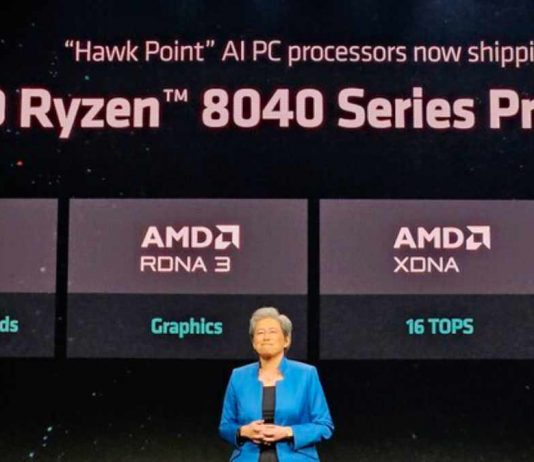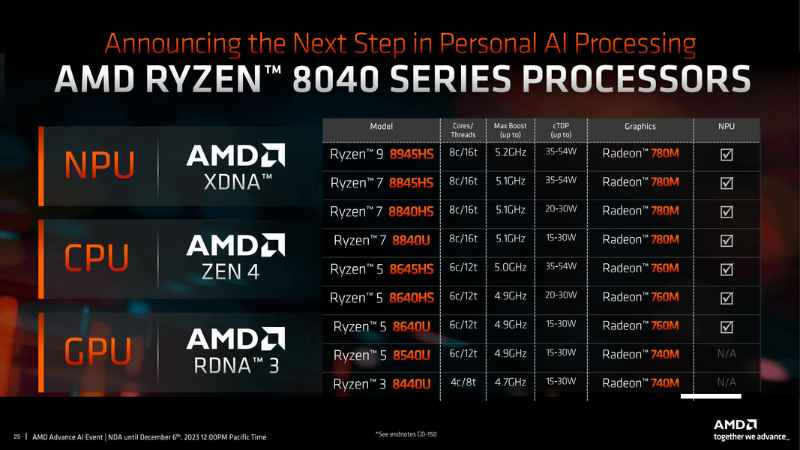AMD has announced its latest Ryzen 8000 series, codenamed “Hawk Point.” This new lineup, revealed just a week before Intel’s anticipated Meteor Lake Core Ultra launch, is poised to deliver a staggering 40% increase in AI performance, signaling a direct challenge to Intel’s market dominance.
Following the mixed reception of the Phoenix APU generation in 2023, AMD has refocused its efforts on the AI segment. Unlike previous years where CES was the chosen platform for new releases, AMD expedited the Hawk Point announcement, a clear indication of its commitment to taking on Intel’s Meteor Lake.
The Ryzen 8000 series, particularly the Ryzen 8040, is AMD’s response to the growing demand for AI-enhanced computing. At first glance, Hawk Point bears a strong resemblance to its predecessor, the Phoenix generation, maintaining the Zen 4 CPU architecture and RDNA 3 graphics. However, the real game-changer is the enhanced AI-Engine, the XDNA NPU, which is based on Xilinx technology. This improvement enables Hawk Point to achieve a 40% increase in AI performance, boasting 16 NPU TOPS and a total of 39 TOPS, a significant leap from the previous 10 and 33 TOPS.
Understanding that robust hardware needs equally capable software, AMD is intensifying its focus on the AI software ecosystem. The company is expanding collaborations and developing tools to enhance support and performance for AI applications. This includes support for ONNX Runtime, PyTorch, and TensorFlow through the Ryzen AI Software, ensuring that their processors are not just powerful but also versatile and developer-friendly.
Learning from the Phoenix generation’s rollout, AMD is ensuring a faster availability for Hawk Point. The new CPUs are already being shipped, with expectations to feature in notebooks by the first quarter. Key partners like Acer, Asus, Dell, HP, Lenovo, and Razer are among the first to integrate these new processors, signaling strong industry support for AMD’s latest offering.
Looking ahead, AMD has already set its sights on the next generation of AI processors. The upcoming XDNA 2, slated for release in 2024, is expected to be part of the “Strix Point” Ryzen processors. These chips are projected to offer three times the performance for generative AI tasks compared to the current Hawk Point series, potentially revolutionizing the field of generative AI in mobile computing.

